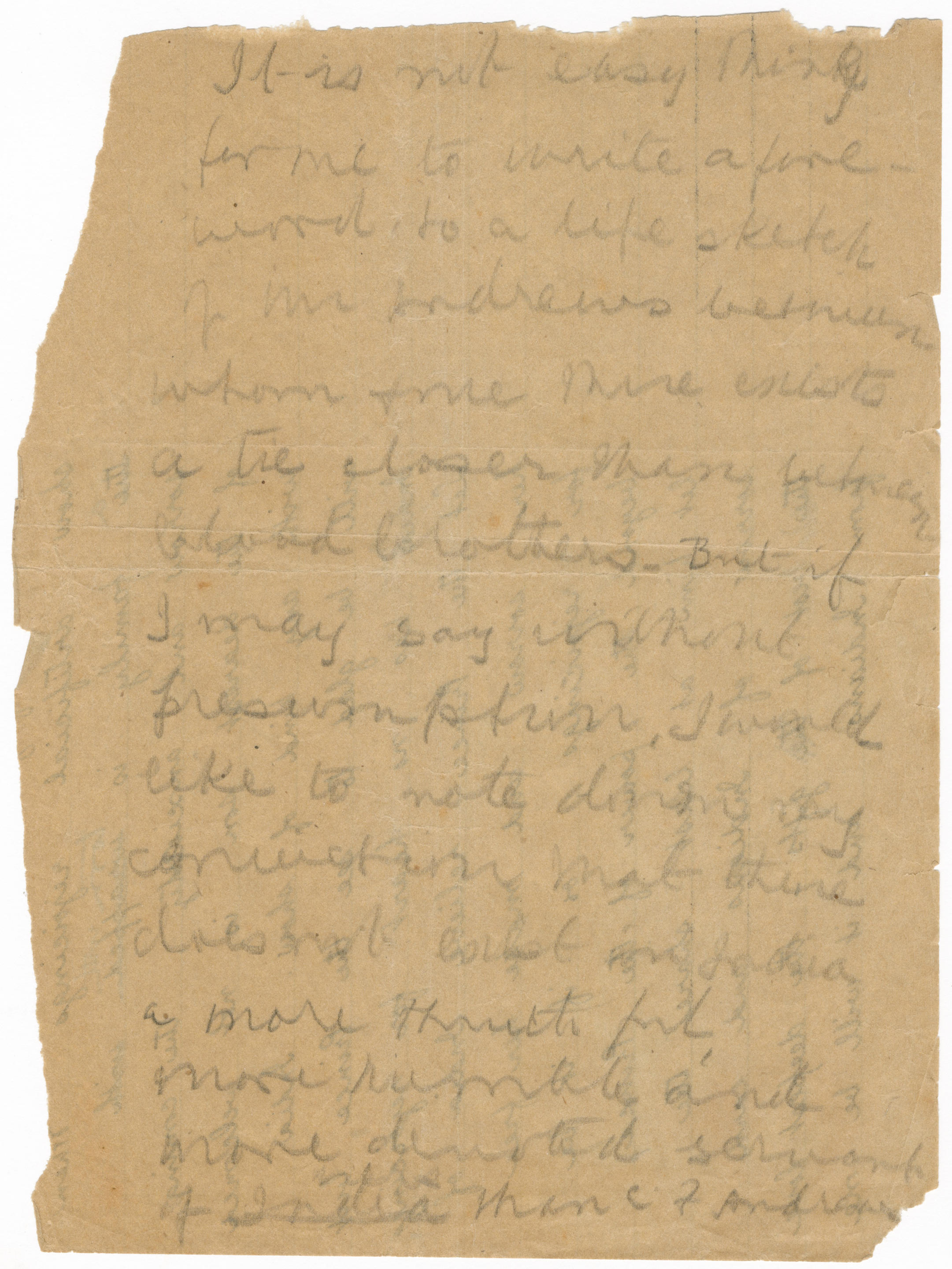Mohandas K. Gandhi
Autograph letter signed, to A.C. Chatterjee, 10 August 1929; and 16 related letters
i) Mohandas K. Gandhi. Autograph letter signed ("MK Gandhi"), to A.C. Chaterjee, acknowledging his apology for an error in a newspaper article ("...I know enough of journalism to appreciate the fact that errors are at times inevitable. I have dismissed the incident altogether from my mind..."), in pencil, 1 page, 8vo (223 x 123mm), [Sabarmati Ashram,] 10 August 1929, pin holes, folds
ii-iii) Rabindranath Tagore Letter signed, with autograph corrections, sent to the press for publication, on the detention by the police of a sixteen year-old boy who had run away from Tagore's ashram, 1 page, folio, Shantiniketan, 11 January 1918, split in four, chipped with loss; with a cover letter, signed, to A.C. Chaterjee, asking him to circulate the letter, 1 page, 11 January 1918
iv-xvii) Fourteen further letters and documents, chiefly to A.C. Chaterjee, including by: Sarojini Naidu (autograph letter signed, on a visiting deputation of the South African Indian Congress, 2 pages, 8vo, Taj Mahal Hotel, Bombay, 23 November 1923); K.G. Gupta (autograph letter signed, 1 page, 24 November 1916); Surendranath Bandyopadhyay (two autograph letters signed, to K.C. Roy, 6 pages, 31 July 1918 to 5 April 1919, the earlier letter split into five pieces), Annie Besant (brief autograph note accompanying a short article on a visit by Robert Baden-Powell to India, 30 January 1921, split), Ben Spoor (article entitled 'Impressions of the Congress, 8 pages, Bombay, 5 January 1921, split into pieces)
A.C. Chaterjee was a journalist with the Associated Press of India (later renamed the Press Trust of India), the Sub-Continent's premier news agency. This put him in contact with Gandhi and other major figures in the Independence movement. He was therefore a useful channel when public figures wished to make information public, such as Tagore's complaint about the police's treatment of a young student at his Ashram (see also lot ***). The error which drew Gandhi's gracious acceptance of Chaterjee's apology has not been identified.
Mohandas K. Gandhi
Autograph letter signed, to A.C. Chatterjee, 10 August 1929; and 16 related letters
i) Mohandas K. Gandhi. Autograph letter signed ("MK Gandhi"), to A.C. Chaterjee, acknowledging his apology for an error in a newspaper article ("...I know enough of journalism to appreciate the fact that errors are at times inevitable. I have dismissed the incident altogether from my mind..."), in pencil, 1 page, 8vo (223 x 123mm), [Sabarmati Ashram,] 10 August 1929, pin holes, folds
ii-iii) Rabindranath Tagore Letter signed, with autograph corrections, sent to the press for publication, on the detention by the police of a sixteen year-old boy who had run away from Tagore's ashram, 1 page, folio, Shantiniketan, 11 January 1918, split in four, chipped with loss; with a cover letter, signed, to A.C. Chaterjee, asking him to circulate the letter, 1 page, 11 January 1918
iv-xvii) Fourteen further letters and documents, chiefly to A.C. Chaterjee, including by: Sarojini Naidu (autograph letter signed, on a visiting deputation of the South African Indian Congress, 2 pages, 8vo, Taj Mahal Hotel, Bombay, 23 November 1923); K.G. Gupta (autograph letter signed, 1 page, 24 November 1916); Surendranath Bandyopadhyay (two autograph letters signed, to K.C. Roy, 6 pages, 31 July 1918 to 5 April 1919, the earlier letter split into five pieces), Annie Besant (brief autograph note accompanying a short article on a visit by Robert Baden-Powell to India, 30 January 1921, split), Ben Spoor (article entitled 'Impressions of the Congress, 8 pages, Bombay, 5 January 1921, split into pieces)
A.C. Chaterjee was a journalist with the Associated Press of India (later renamed the Press Trust of India), the Sub-Continent's premier news agency. This put him in contact with Gandhi and other major figures in the Independence movement. He was therefore a useful channel when public figures wished to make information public, such as Tagore's complaint about the police's treatment of a young student at his Ashram (see also lot ***). The error which drew Gandhi's gracious acceptance of Chaterjee's apology has not been identified.















Try LotSearch and its premium features for 7 days - without any costs!
Be notified automatically about new items in upcoming auctions.
Create an alert